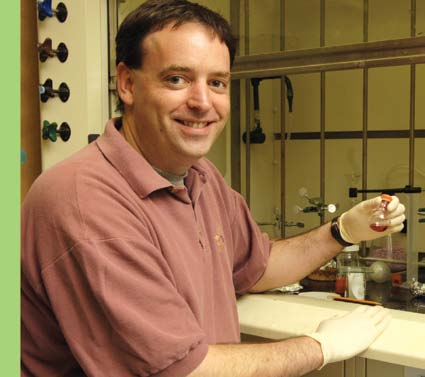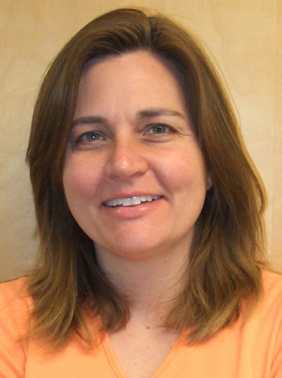 |
 |
The Center for Scientific Review has shortened the review cycle for new investigators submitting R01 applications. The schedule change benefited both Dr. Paul Thompson of the University of South Carolina and Dr. Megan McEvoy of the University of Arizona. |
“I was virtually broke, so I had to have the money,”
said Dr. Paul Thompson, describing the pressures he felt having to resubmit his first R01 grant application. Dr. Megan McEvoy felt different pressures. “My tenure clock was ticking,”
she explained.
The Center for Scientific Review has shortened the review cycle for new investigators submitting
R01 applications. Since 2006, these applicants
receive their scores and critiques within 10 days of the review meeting. And since September
2007, CSR has accelerated these reviews so new R01 applicants can resubmit their applications
in the next review round instead of being forced to wait out a round.
Both McEvoy, from the University of Arizona, and Thompson, from the University of South Carolina, were in tight spots: Their previous applications were unscored and they were running
out of time. But they both had reasons to be optimistic and resubmitted in the next round.
“My main problem was making it clear why what I wanted to do was important and a good way to approach it...That’s something that can be addressed on a short time scale,” said McEvoy.
Thompson explained his situation: “The reviews overall were quite positive…and my chair and my mentor both said, ‘I think you should just try to turn it around.’”
Both Thompson and McEvoy did well in the following
reviews and are now funded.
“I don’t think everybody should do it,” cautioned
Thompson. “You have to look at your reviews and make sure that the comments are addressable and not just go in just to go in.” NIH encourages applicants who have questions to discuss them with their program officer. Of the new investigators given the opportunity, between 10 percent and 13 percent resubmit their R01 applications in the next round.
NIH is currently finalizing a qualitative and quantitative evaluation of these shorter review cycles; the results of this study will guide efforts to shorten review cycles for other applicants.
Some established applicants, however, haven’t waited. CSR now holds its review meetings and posts summary statements earlier than before. Thus, many applicants can resubmit in the next round, and about 100 take advantage of this opportunity each round. “It makes a huge difference,” said McEvoy. “I go up for tenure
this summer.” 